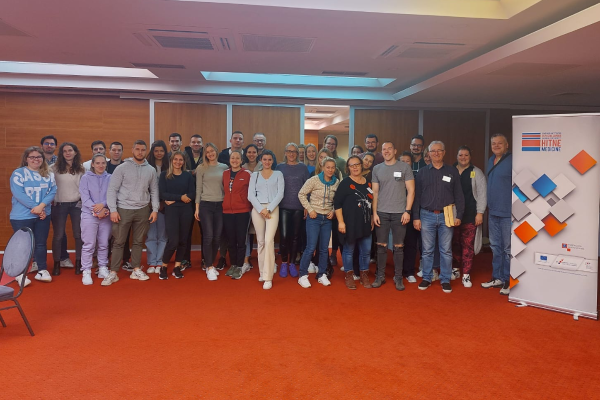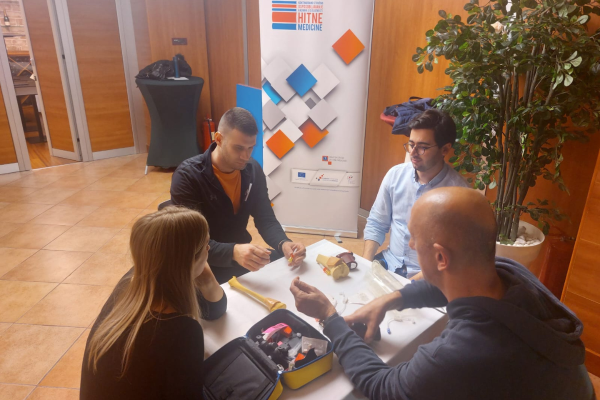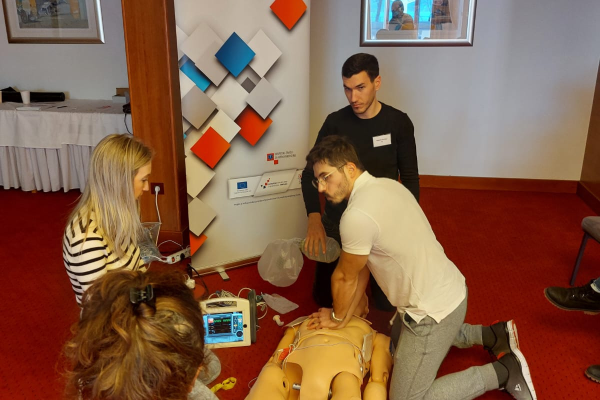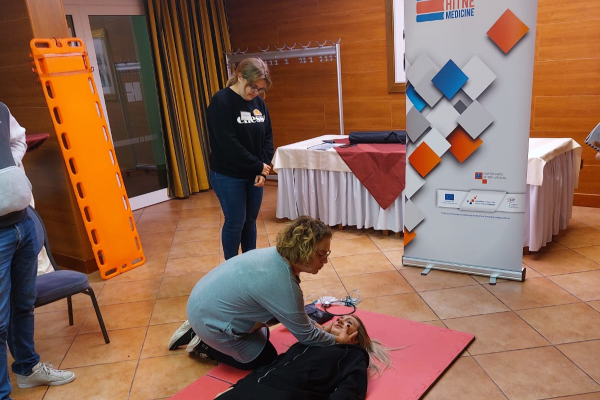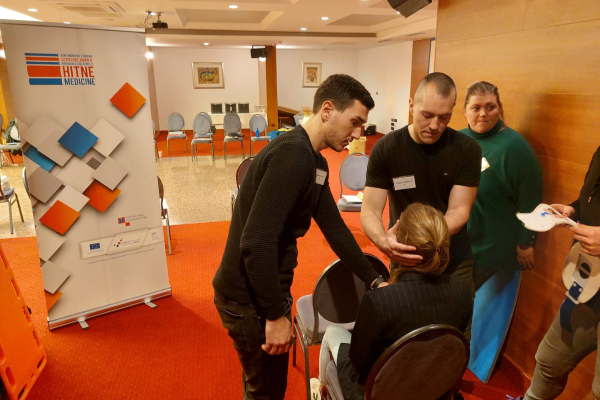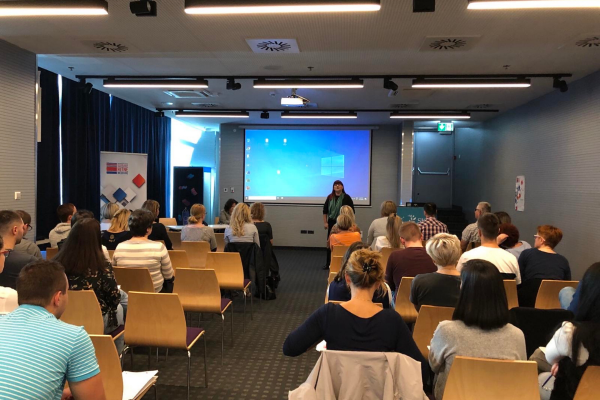The cycle of educational exercises as part of the project Continuing professional training of emergency medicine workers closed last week in Zadar exercise for doctors, nurses and technicians in the pre-hospital emergency medical service (EMS).
A team of national instructors led by Katja Kudrna Prašek shared their knowledge and experience with 30 employees of the county institutes for emergency medicine of Dubrovnik-Neretva, Split-Dalmatia, Šibenik-Knin and Zadar counties. In addition to theoretical knowledge, the participants also improved the skills necessary for the quality provision of emergency medical care thanks to practical work and simulation of real situations and conditions that EMS employees encounter at their workplaces.
Held from January 12 to 15 this year, it was the last of a total of 62 educational exercises planned within the framework of the Continuing professional training of emergency medicine workers, which trained over 1,600 EMS employees, while two more were held separately for national instructors. The project included five educational programs that covered all workplaces in the emergency medicine system. A total of 28 exercises were held for doctors, nurses and technicians in pre-hospital EMS, ten training exercises each for medical dispatchers and drivers in pre-hospital EMS, and seven each for workers performing triage in emergency medicine and for nurses in emergency departments.
To respond to the daily challenges of emergency medical care for the citizens and visitors of the Republic of Croatia, emergency medicine workers must continuously acquire and improve their knowledge and skills. Therefore, the Croatian Institute of Emergency Medicine launched the project Continuing professional training of emergency medicine workers with new, revised educational exercises intended to educate everyone who enters and works in the system as soon as possible about emergency patient care. Worth almost HRK 9.5 million, the project was co-financed by the European Social Fund within the Operational programme Efficient Human Resources 2014 – 2020.

